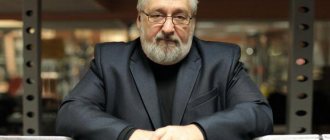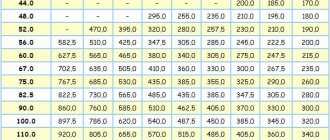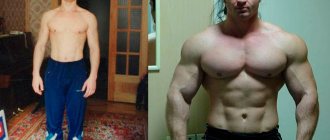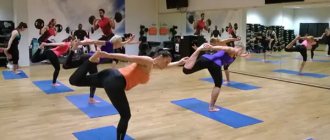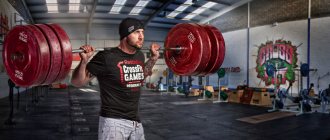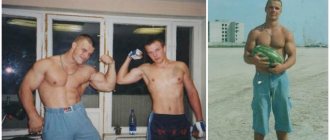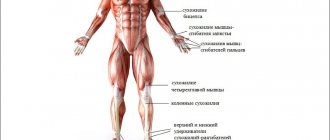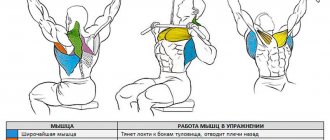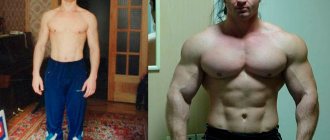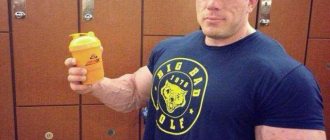Updated July 23, 2022 596 Author: Dmitry Petrov
Hello, dear readers of the KtoNaNovenkogo.ru blog. Powerlifting is a relatively new sport for us, which is now just gaining popularity in our country and many want to know what it is and how it differs from bodybuilding (bodybuilding) that is so familiar to us.
In fact, this topic is really interesting and is worth devoting a separate article to it, which will describe all the important points and provide interesting photos and video illustrations. Don't switch, it will be interesting.
What is powerlifting
Literally translated, powerlifting is power lifting , that is, lifting weights exclusively with power movements, without jerking, cheating, or swinging.
But such a translation is, in fact, just an interlinear translation.
In sports connotations, powerlifting is a sport in which the winner is determined after performing three types of exercises :
- Bench press.
- Squats.
- Barbell deadlift.
By adding up the maximum weight lifted in each movement.
An alternative to an alternative in powerlifting (Denis Piklyaev)
Alternative powerlifting or an alternative to an alternative...
The year 2003 was truly fateful for the development of powerlifting in our country: alternative federations WPC-Russia and WDFPF-Russia openly declared themselves (RDFPF is a doping-free federation that relies on the bare-metal division). And if the RDFPF, having started famously, after a while completely shredded and died out, then the WPC-Russia for many years became the flagship in the powerlifting space, which was later followed by the rest, led by its permanent president Yuri Ustinov. In 2004, the organization’s first competitions took place – the WPC Russian Championship in Sochi.
In the photo: Yuri Ustinov - President of WPC
However, the WPC-Russia federation itself appeared in Russia much earlier, in 1993, under the leadership of Valery Andreevich Samoilov, but all its activities were kept under wraps, athletes performed “quietly”, mainly at international competitions, this information was not covered anywhere, so that not to fall under the heavy hand of the FPR (Russian Powerlifting Federation). But the WPC as an organization came to the “wide screen” thanks to Yuri Ustinov.
You can have different attitudes to the very personality of this person, but you simply cannot miss the fact that it was Ustinov who was the “first of the Magicans” who openly raised his head and created something new. One can only imagine what obstacles the FPR functionaries put in his way. The goal then, and even now, was the same - the dissenting athletes decided to create a federation of athletes for athletes, taking into account all the wishes. However, something did not go as originally planned...
Dmitry Kasatov, a direct participant in those events, ex-vice president of WPC-Russia, ex-chairman of AWPC-Russia:
“In order for the reader to have a complete picture regarding the WPC, I will first tell you how it all began. At the heart of all events there are always people: their characters, motivations and actions. How and why did WPC appear in Russia? There was once a magazine called “World of Power”. It was a printed publication entirely dedicated to powerlifting. It belonged to the Flex Gym company. And the editor-in-chief of this magazine was a simple Novorossiysk powerlifter Yura Ustinov. There was one powerlifting federation in the country - the FPR (IPF), headed by Bogachev. Bogachev was doing pretty poorly in powerlifting, so there were a lot of people dissatisfied with him. We must also take into account that powerlifters are tough men with high testosterone levels. Therefore, there is increased conflict in this sport.
In the early 2000s, the Internet and communication on Internet forums developed rapidly. Powerlifting also had its own Internet forum on the website Powerliftng.ru. It should be noted that the FPR powerlifting federation underestimated the importance of the media and initially missed its role both in print and on the Internet. The forum on Powerlifting.ru belonged to Alexey Kurkov and Pavel Lukashin, who were not loyal to the FPR. At this forum, discussions arose condemning the policies of the leadership of the FPR. Yuri Ustinov was part of the opposition to the FPR. Yura is an enterprising guy, but the salary of a magazine editor is not much. His fellow Internet communicator Andrei Butenko, an emigrant to Canada, suggested the idea of why not create his own version of a new federation in Russia? In 2003, they decided to take a team of the strongest Russian benchers to the WPC World Championships in Canada. Funding for the flight was provided by a famous sports philanthropist. I don’t know whether he will be pleased by the mention of this event, so I won’t name him. So, a team of the strongest benchers in Russia at that time: Sergei Popov, Vladimir Kravtsov and Andrey Chesnokov went to the rather modest WPC World Championship. Also flying there were Yuri Ustinov and an odious character who had the image of a desperate “chemist” from the pen of the same Yura - Alexander Skachko. I remember this event very well, because I took the whole team to Sheremetyevo. True, that Championship was a rather modest event, but on the Powerlifting.ru forum and on the pages of the “World of Power” it was covered as the first manned flight into space. That is, an informational message was sent, saying that that’s it – the FPR monopoly is over. We will now be competing in the US, including the WPO. Namely, these letters: “WPO” - worried the minds of Russian powerlifters at that time, thanks to stories about Yura Ustinov’s WPO tournaments on the pages of “World of Strength”.
In the photo: Dmitry Kasatov - President of the Bogatyr Brotherhood
WPO – where the strongest compete for prize money. Let me remind you that in Russian powerlifting there were no prize money at that time. With the exception of one case, but we will not remember it now. So, the powerlifting internet was excited about the performance of the strongest past the IPF at the WPC World Championships in Canada! Nothing inspires action like personal example. And such an example was given not by anyone, but by the best: Vladimir Kravtsov and Sergei Popov. After which Yura Ustinov organizes the 2004 Russian Championship in Sochi. The most revolutionary-minded powerlifters in Russia came there, who were dissatisfied with the FPR. With the constant fueling of interest in the WPC from the World of Strength magazine and the Internet forum, and trips to competitions abroad (though at the expense of the athletes themselves), the popularity of the WPC grew like an avalanche. It must be said that this happened thanks not only to Yura, but also to his associates with an active life position and a desire to improve powerlifting. And here I want to note an important point: at that time, WPC did not bring money, but on the contrary, it required. Therefore, the founding fathers of the WPC of the Russian Federation had as their motivation only the improvement of their favorite sport, and not their material well-being. Our main goals then were to create professional powerlifting with prize money and access to TV. In 2007, WPC was already in the black thanks to the active work of a number of bright personalities associated with the WPC.
We made many publications in all “Kachkovsky” magazines, on the Internet, and all this was done by people on their own initiative and without any fees. Advertising attracted more and more new athletes to the WPC. However, Yura did not take any steps towards paying the prize money or organizing a professional WPO. Moreover, he moved from collegial management of the federation to individual management. At that time, I managed to launch regular TV programs on powerlifting “The World of the Strong” on NTV+, investing my own money and effort. But Yura did not consider it necessary to develop this direction. It soon became clear to me that the WPC had transformed from powerlifting's opportunity to take a quantum leap forward into Ustinov's personal feeding ground. In addition, Yura Ustinov was a dealer of Inzer, powerlifting equipment. My attitude towards equipment is unequivocal – negative. In 2008, Vladimir Kravtsov and Sergey Badyuk held the first tournament in Tyumen among the strongest bench pressers without equipment at that time - the Zapsibgazprom Cup. This was a revolutionary step, again they showed by personal example that yes, you can bench press without bench press shirts. And already on this wave, the fight against equipment, I decided to take the next step - splitting the WPC. As a result, in 2008, Vladimir Kravtsov and I organized the bare-knit federation “Bogatyr Brotherhood”. They made TV shows, an online magazine, and tournaments with prize money, showing by personal example that you can do great things without Ustinov. There was a division at the competitions into amateurs and pros. There are always prizes in PRO. And it was good prize money. At WORLDLIFTING 2010, for example, it was $14,000. Even though this was patronage, it seems that it gave an incentive to other competition organizers not only to collect money from athletes, but also to pay prize money.
Many WPC organizers, those who were financially independent, able to think and make decisions, soon also left the WPC. I’m now quite far from powerlifting in terms of my activities, but I hope that professional powerlifting will still crystallize.”
An alternative, let’s say it’s small and lyrical, unlike the state one. Federation, has its own unique development path, aimed primarily at self-sufficiency, which in its case rests on the constant influx of new athletes, retention of those already performing, and for this, everything is done in such a way that it is comfortable and good for all participants in this process. That is why alternative federations are simply doomed to better conditions for athletes, better award paraphernalia, prizes and other gifts, an open position towards athletes and much more - compared to the FPR.
And powerlifting itself benefits from this. Think about it: what a giant step powerlifting has made over the last 10-12 years in Russia. And all this thanks to the alternative. Let's say, let's take weightlifting, which is also a native iron sport for us, in which there is no alternative, we will remove the names of mastodon weightlifters: Alekseev, Rigert, Vlasov. And that’s all... There is no information - one federation is brewing in its own cauldron, a circle of interests. It's not like that in powerlifting. Methodology, interviews, motivation. There is a lot of information, there are more people involved in powerlifting, even just for themselves, every year. This is a given, and there is no need to look for pitfalls in my words.
However, let's get back to the point. So, WPC is extolled by many adherents and denounced by many opponents. The fact that they were the first, as I wrote above, is indisputable. The fact that it is widely represented in the world and especially revered does not raise any doubts in anyone’s mind. Why is there such ambivalence towards this particular organization in our country? It is clear that in Russia everything has its own national flavor, but still. Let's take a look and look at this issue in more detail.
There are no bad federations, I will even say more - they are all organized according to the same pattern, they have almost the same competitive disciplines, almost identical rules, more or less similar award paraphernalia. So it's not a matter of letters? Certainly! It's about those people who are at the helm, their actions and actions. And over time, we can observe how the most alternative federation, WPC-Russia, becomes a kind of double of the FPR, namely:
- sueing undesirables;
- banning athletes from competing in other organizations;
- lack of dialogue with other organizations, ignoring them;
- closed position towards athletes.
Purely alternative “buns” are also already leaving their mark:
- “cloudy” DC or DC only on paper;
- fees from regional representatives in the region of 30-50% of all income from starts;
- extortions from athletes who want to compete abroad.
Naturally, there were dissenters, namely the most active, successful, able to work people with their own vision of what independent powerlifting should be. And new federations began to appear, as an alternative to the alternative. Federations that represent independent, not alternative powerlifting. And it wasn’t about making money, not at all. I want to especially emphasize this.
Ivan Smyslov, President of ASM “Vityaz” (received WPA affiliation at the beginning of 2010):
Reason for leaving WPC? In 2009, I held a WPC competition in my hometown of Cherepovets. Prize fund, medals, cups, good premises. Contributions from participants did not even cover half of the costs.
There was no thought of making money. These were competitions in memory of a friend and an opportunity to participate in the development of sports and their favorite federation. Yes, at that time I was 24 years old, and I loved WPC with all my heart (to make it clear how fanatically devoted I was to WPC: I specially ordered backgammon with the letters WPC/WPO cut out!).
In the photo: Ivan Smyslov - President of ASM Vityaz
And what was my surprise when they informed me that since I invited Dmitry Kasatov to the competition, the results of the competition are canceled, and the regional federation (Vologda region) is deprived of the right to award titles higher than the CCM for a year or two.
Dmitry Kasatov was my coach, and I asked him to come and help hold the competition.
It turned out that Dmitry is the main enemy of the federation, and his presence “insulted the athletes.” I tried to explain that athletes have absolutely no problem with all their internal squabbles; many don’t even read the forum where all these squabbles took place (Back then there was Alexey Kurkov’s forum, and social networks were not as popular as they are now). But the scandal only intensified every day. Disagreeing with the policy of WPC-Russia, and also guided primarily by the fact that the conflict could negatively affect the athletes, I decided to leave, consciously and carefully.
I left without regrets: to hold competitions for my own money, go into the red and, as a result, get so much dirt addressed to me. In just a week, my rose-colored glasses were removed in relation to the leadership of the WPC and the slogan “A federation created by athletes for athletes.” I still keep the WPC/WPO backgammon to remember that people are characterized by their actions, and not by beautiful slogans!
In 2009, Dmitry Kasatov held the first competitions not from the WPC, but from his organization “Bogatyrskoye Brotherhood”. I decided that I could also hold competitions on my own, and opened a WPA representative office in Russia. On April 24, 2010, the first WPA Russian Championship was held.
Did I do this for money? No. My dream was to break even. I thought this was the best option. 7 years have passed, and our dreams have come true: we almost always break even.”
The relationship between the leadership of the WPC in the person of Yuri Ustinov and the breakaway athletes and organizers developed differently, however, probably the most ardent opponent of this federation, the ideologist and creator of the NAP (National Powerlifting Association) Andrei Paley (NAP was created a few months after Ivan Smyslov left WPC in 2010):
“The split began a long time ago... But specifically, since 2010, Ustinov took decisive steps to ban athletes from competing in other federations, i.e., for the sake of which the alternative was created, for which we stood so much... began to transform into the same FPR... A Resolution was issued for number 16, in which athletes were prohibited from competing anywhere except the WPC.
In the photo: Andrey Paley - vice president of the NAP
I felt this myself after performing at the IPA World Championships in Pennsylvania: first, someone spread a rumor that I had died in New York, and upon arrival they shook their finger at me... Naturally, I was indignant and honestly warned Ustinov that if he will tell me where to speak, then out of principle I will register an alternative against an alternative))) Which is what I did a few months later, having received official affiliation from IPA President Mark Chailet. This was an open demarche against Ustinov. He resisted for quite a long time, but then over time he calmed down... This is very short and omitting a lot of details and nuances))) If I describe everything, the book will not be enough)))"
A less radical, but also consonant position is taken by Sergei Dluzhnevsky, president of the Union of Powerlifters of Russia (Russian Powerlifters Union, the federation was formed in early 2014, has affiliation of such international organizations as GPA/IPO and IPL), WRPF-Russia, WEPF-Russia, WAF- Russia, FZD-Russia:
“The decision to obtain affiliation of the international federations GPA/IPO/IPL and create the federation “Russian Powerlifters Union” came to a head in mid-June 2014 due to disagreement with the policy of the WPC Russia leadership. We did not quarrel with Yuri Ustinov, we simply did not find understanding on some issues, and I announced my opportunity to resign from the post of regional representative of the WPC of the Vologda region. I did not receive any answer, but he was not ready to compromise with me either. As a result, after waiting for some time, on June 22 I announced the creation of a new federation.
In the photo: Sergei Dluzhnevsky - President of the SPR
At that time, I had experience in sports functioning as a representative of the city of Vologda for the FPR (2000-2006) and a regional representative of the WPC of the Vologda region (2006-2014). I was supported by an experienced team that was with me almost from the very beginning of my work.
Initially, we put the human attitude towards people at the forefront. I think it’s important for an athlete to be able to get a direct answer from any management representative.”
Also quite interesting is the opinion about WPC-Russia, in which there are notes of nostalgia for bygone times, from the president of the international federation WRPF (formed in 2015), WEPF and WAF (organizations created in the summer of 2022) Kirill Sarychev:
“About WPC-Russia, I will say that this was the second federation in which I took part, the first was the FPR... My first start was in 2007, Chelyabinsk, if I’m not mistaken, the Russian Championship - I immediately broke some records there and I was pleasantly surprised by the atmosphere and friendliness that reigned there. The people I saw on the covers of “powerlifting” magazines sitting on the forum were all there, and that’s what really attracted me: it was clear that everyone was united by one big common goal. This is why the WPC-Russia federation, directly from 2007, really attracted me.
Then there was Kursk - Eurasia, in the fall - the World Championships in Togliatti... And so my “rose-colored glasses” continued until 2008, when in Rostov at one of the championships, when I re-qualified for the adult discipline, because. I performed in juniors and won the overall bench press competition here and there, I was not called to the award ceremony. I came to ask a question, they answered me: “how are you so tired of your re-assessments?” only it was in obscene form, it was one of the managers. Of course, I didn’t object, but since then I’ve taken off my rose-colored glasses.
The last competition for which I specifically prepared in WPC-Russia was the competition with my friend Misha Weber in Rostov, in 2009, World Championship b/e. All subsequent starts at which I competed in WPC-Russia were not planned, but simply were, due to the lack of other starts at that time, at the time in which I wanted to compete...
But, nevertheless, to this day, I still have a warm attitude towards the WPC-Russia as a federation, because the atmosphere that reigned at the competitions of the year when I started performing in the alternative was exactly so soulful.
In the photo: Kirill Sarychev - President of WRPF
I remember that time, the time of my performances in WPC-Russia, with pleasure: when I was still a young man, I read about myself on forums, and all the crap I read from people I didn’t know at all... What motivated me to become stronger?! And in this regard, the negativity poured in my direction only benefited me. I became angrier and stronger. So everything wasn’t so bad before, at least it was fun.
I hope that at our tournaments we are now able to create that spiritual atmosphere of the WPC 2007 model and I have no complaints against anyone, despite the bans on athletes, including me (I was once banned from attending competitions abroad) . It’s just short-sighted and not wise, it’s like digging a hole for yourself, refusing, if a commercial model is chosen, from the same people who bring you money and the prestige of the tournament...
And we must not forget, this is a powerlifting milestone that has already taken place, it cannot in any case be passed over - the “Battle of Champions”. “Battle of Champions” and Andrey Fedoseev, the man who supported me for 5 years and who really helped me in life. “Battle of Champions” is a giant leap in powerlifting, a professional, watchable, thoughtful and interesting project for the whole world. Andrey, with his meticulousness, simply reviewed the entire powerlifting and presented it with a sauce under which it could be sold.
Unfortunately, the biggest disadvantage of the “Battle of Champions” for distribution is that it was held in Arkhangelsk, and not in Moscow. At that time, there were no tournaments without equipment, there were no analogues - it was Andrey who laid the foundation for prize money in raw powerlifting, and he made a huge contribution to the development of raw powerlifting after Misha Weber held his 2009 World Championships in Rostov-on-Don. Misha gave the impetus, while Andrei simply, like a rocket, took our sport from earth’s orbit into the stratosphere and further into space. Well, we’ve already connected, and we’re adding more and more steps to this launched satellite, not even a satellite, it’s already a whole planet called “powerlifting”...
In the summer of 2022, the WPC-Russia is once again shaken by scandals: the capital WPC-Moscow team, led by Yuri Solovyov, “set off on a free voyage” - WPU (World Powerlifting Union) affiliation has been obtained. This is undoubtedly another blow to the prestige of what was once the most powerful alternative organization in Russia.
Here is the official position of WPU-Russia on this issue:
“Due to a categorical discrepancy in views on the further development of powerlifting in Russia with the leadership of the WPC, as well as the presence of their own, special opinion on many aspects of the activities of the sports federation in Russia, the Moscow representative office in its entirety, including the secretarial and referee corps, left the WPC.
In the photo: Yuri Solovyov - President of WPU
...An archaic attitude towards documentation, the lack of an archive of awarded titles, the closure of information for athletes, short-sighted leadership, unwillingness to keep up with the times and a complete lack of new ideas - now all this is in the past.”
From the information presented to you above, it becomes obvious that the reason for the emergence of new federations of independent powerlifting was the ossification of thinking, the inflexible, sometimes reaching the point of absurdity, policy of the WPC-Russia leadership. The words of Leonid Baryagin, president, founder and ideologist of the FJD (Federation of Bench Biathlon, organization formed in September 2013) become prophetic here:
“In fact, if you look at it, the leadership of WPC-Russia is creating an alternative to itself... Look: Ivan Smyslov, Andrey Repnitsyn, Sergey Dluzhnevsky, Yuri Solovyov left the WPC due to disagreements with the leadership, these are talented, experienced organizers who, naturally, did not remain idle.
In the photo: Leonid Baryagin - President of the Federal Railways
If my goal was to weaken the position of the WPC and strengthen the position of purely Russian powerlifting, then it would be difficult to even think of a more logical option than this. As they say, what is not done is done for the better: such powerful federations as SPR, NAP and ASM “Vityaz” have appeared in Russia. Thus, the short-sighted policy of the WPC-Russia leadership pushed the process towards reformation and a change in the leader of alternative powerlifting.”
It is impossible not to note the fact that the country's leading athletes, legends of world powerlifting, and not just the above-mentioned functionaries, continue to persistently and negatively (remember the flash mob with the destruction of WPC crusts, angry comments that filled the Internet) express their opinions towards the WPC leadership Russia – and this, whatever one may say, raises a lot of questions for Yuri Ustinov and his team. WPC-Russia is losing athletes, entire regions - isn’t this a degradation of the organization itself? At the same time, the movement towards the “Iron Curtain” continues stubbornly. How can one not compare the actions of WPC-Russia with the prohibitions of the FPR?
To be fair, it is worth noting that not all of the people I interviewed express such an unambiguously negative attitude towards the WPC, here is another opinion of a person at least knowledgeable, who stood at the very origins, the creator of that very famous forum mentioned above, and also subsequently the editor-in-chief of the reanimated cult magazine "World of Power", Alexey Kurkov:
“You really are amazed at how HUGE the federation Yuri Ustinov managed to create in his time, that after 14 years of its existence, regional representatives have taken place and become stronger in it, who, some more successfully, some less, but created 5 new federations (not counting branches) + federations that were independent projects (LSWS and WRPF).
In the photo: Alexey Kurkov - owner of the Powerlifting.ru forum
I think that this is the natural course of history, development, and it will continue further, and new athletes will flow into our sport, but I really hope that fragmentation into federations has come to an end, because in fact, now we have everything as we wanted, a sea of alternatives ..."
By the way, is it good or bad when so many federations function in our country? The question is complex and ambiguous - you can find both your pros and your cons everywhere. What is interesting here is the opinion of the functionaries themselves representing independent powerlifting in Russia. Ivan Smyslov commented on the situation most clearly:
“Very often I hear the phrase: “The federations have broken up!” Why do you need so much? I answer as an athlete, and not as the head of an association: “So that federation leaders always look for a sustainable competitive advantage, i.e. tried to do better than others!
The first time I performed was in 2004. Over these 13 years, there has been a breakthrough in the organization of competitions: prize fund, equipment, platforms, medals - all this is now in independent powerlifting at such a high level that most other sports have never even dreamed of. Competition is the engine of progress, and with it there is complete order in the alternative!”
It is impossible not to take into account the words of Kirill Sarychev, who, together with Sergei Dluzhnevsky, created a powerful tandem of organizers, uniting their federations into a single whole. The WRPF leader sees this as the vector of development of the organization he heads:
“Our federation, as far as WRPF is concerned, was not formed in spite of anyone, not as an alternative to something, but simply as an independent product. Those. Based on experience, seeing where things are wrong, seeing where there is injustice, remembering the injustice of the WPC-Russia leadership towards itself, I tried to take all these points into account, thanks to the team with which we are all moving forward together. Now we work very closely and are friends with Sergei Dluzhnevsky, and I am glad that I have such reliable friends as him. We are developing the federation not only at a qualitatively new level in Russia, but throughout the world. And not in order to prove anything to anyone, not in spite of anything, we just want to grow a standard example of our sport, simultaneously expanding and conquering more and more new horizons for ourselves, in the form of other sports, and hearts new athletes who will participate with us.”
WPC-Russia continues to “tighten the screws” and is becoming an organization increasingly isolated from other participants in the single “iron” space. Only time will tell how correct this path has been chosen.
On my own behalf, I just want to add that how modern powerlifting will develop, friends, and this is an immutable truth, and entirely our responsibility. Now, due to the large selection of federations, many find themselves faced with a choice of where to compete and are at a crossroads. And which path you will take: along the path of closed information, disqualifications and extortions, or along the path of open, healthy sports competition with human relationships at the forefront - depends only on you, everyone decides for themselves. After all, the letters, I repeat, are not the main thing, it’s about the people...
With that said, I hasten to take my leave and hope that this information will serve as a good reason for you to think hard about what is happening in powerlifting now and draw your own conclusions.
Sincerely, Piklyaev Denis.
Rate this article:
[Total: 0 Average: 0]
Similar
When did he appear
In the mid-30s of the 20th century, on the southwestern coast of the United States near the town of Santa Monica, such a sports and cultural phenomenon appeared - “ Muscle Beach”.
Masses of young people uprooted by the Great Depression found there the opportunity to train and demonstrate their success in the field of developing strength and muscle size.
During World War II, Muscle Beach gained even more popularity due to the fact that veterans were recovering from injuries there.
But gradually, by the second half of the 40s of the 20th century, quantitative changes in training methods gained critical mass, and structural innovations were required.
Together cannot be divided
There is no comma in the title to indicate the depth of disagreement between powerlifting and bodybuilding , based on a common foundation. The reason becomes clear when taking an absolute look at the goals of these sports:
- Bodybuilding (bodybuilding) – muscle hypertrophy to form a body with ideal proportions and symmetry.
- Powerlifting is the development of maximum physical strength in certain movements.
The accumulation of practical experience led to a paradoxical conclusion. It turns out that some muscle groups that look very impressive do not contribute to the growth of physical strength at all.
For example, biceps favorably emphasize masculinity and an athletic physique, but have almost no noticeable effect in lifting weights. At the same time, a clear division of different types of training was formed. Some of them were purely strength training, others contributed to increasing muscle mass.
Up to a certain level of athletic performance, almost all bodybuilders were involved in powerlifting. This made it possible to lay a powerful foundation for a further base of specialized training. But gradually, athletes are divided into pure “ posers ” (bodybuilders) and strength athletes (powerlifters).
Therefore, there is now a clear understanding that powerlifting is an exclusively strength sport. But this does not prevent powerlifters from having a powerful and beautiful figure.
What kind of sport is powerlifting?
Having formed its niche, powerlifting did not immediately settle on classical exercises:
- Bench press.
- Squats.
- Barbell row.
After all, these movements did not load such a beautiful muscle as the biceps. Therefore, for the first 20 years, until 1964, powerlifting competitions included various additional movements, such as:
- Bench press sitting behind the head;
- Standing barbell curl;
- Seated arm curl with a barbell.
The last two exercises focused exclusively on the biceps muscle of the arm. But gradually the desire for power identification took over, and since 1972, when the International Powerlifting Federation (IPF) was created, competitions have been fought only in three basic movements .
Search
The championship of St. Petersburg and the Leningrad region in powerlifting, its individual movements and folk bench press according to the GPA/IPO version will be held in St. Petersburg on February 15, 2015. For some, this is an empty phrase, but those who like to sip pieces of iron probably got excited. Our St. Petersburg president Dmitry Lysikov gave Zozhnik an interview in which he will tell why alternative federations are needed.
Tell us, non-experts, what is GPA/IPO?
Everything is simple here. GPA stands for Global Powerlifting Alliance and IPO stands for International Powerlifting Association. If you know what I mean.
We understand. Tell about yourself!
My name is Dmitry Lysikov, I am a master of sports of WPC Russia in deadlift and the absolute champion of St. Petersburg in naked powerlifting. Recently he became president of the regional branch of the Russian Powerlifters Union federation.
Dmitry Lysikov – President of the regional branch of the Federation of the Union of Powerlifters of Russia
Dmitry, tell me, who came up with the idea to create their own federation? For what?
The idea came to the mind of Vologda resident Sergei Dluzhnevsky, who at that time was the regional representative of WPC in his city. At some point, his views on the development of powerlifting in Russia disagreed with the leadership of the WPC, and then it was decided to organize a branch of the GPA\IPO\IPL federations, which at that time did not have representation in Russia. And already the first competitions held in Vologda showed the correctness of this decision.
Sergey Dluzhnevsky and he has a LiveJournal https://seregadlu.livejournal.com
Why are alternative federations needed at all?
Alternative federations are needed to diversify powerlifting life. For example, in the official Federation of the Russian Federation they hold competitions only in powerlifting and bench press, and the standards are generally only for equipment powerlifting. People are interested in trying themselves in different exercises, and, of course, receiving ranks and titles in them.
Who can participate in your competitions?
Anyone who is 13 years old at the time of the competition and has no contraindications from a doctor. We will be glad to see everyone: both beginning athletes and those for whom these starts will not be the first.
What is clear to those “in the know” is a dark forest for the rest. Tell us how your federation differs from others?
Mainly because we have a large selection of “exotic” nominations, such as bench press or power combined, for example, or powersports. And so, of course, all alternative federations are generally similar to each other.
Is there hazing among those who like to lift weights? Is it possible that “making” a master of sports in your federation is less honorable than, say, in the FPR?
This is the attitude of the official federation “FPR”. They very jealously guard their status as “the only one,” so they try in every possible way to show that all alternative federations are simply “public organizations.” But the lifted kilograms do not become lighter due to the lack of approval from the ministry.
The Federation is young and still little known. How will you develop the topic?
Our plans for now are to hold the first competitions in St. Petersburg at a decent level, in order to keep up with Vologda, which has always been an example for us in terms of organizing events. And then we will raise the level of competition so that athletes from the northern capital can compete at high-level competitions without leaving their beloved city.
And one more question for those who are not in the know: what disciplines can you compete in on February 15?
Powerlifting, bench press, deadlift, barbell squats. All of the above disciplines have their own standards for performance with and without special equipment, as well as with and without doping control.
Read on Zozhnik:
Jock Sect
How to pump up the press correctly
The most effective exercises for hamstrings
How to squat with a barbell correctly
Powerlifter physiology and equipment
No matter how hard a person tries, he will not be able to surpass the strength of an elephant - the scale is not the same. Therefore, after a sharp rise in officially registered records, further struggle began to occur not only thanks to human physiology, but also due to the development of movement techniques, the development of sports pharmacology and the appearance of special equipment.
The technique of performing the exercises was standardized with minor variations allowed. For example, barbell rows are allowed both with a Sumo grip (feet wide apart) and in the classic way.
The use of pharmacological agents was also regulated, thanks to a clear separation of hormonal drugs from ordinary vitamins and natural stimulants.
But with equipment turned out to be quite complicated. On the one hand, the use of elastic bandages and a weightlifting belt is a necessity due to the high risk of injury in powerlifting. On the other hand, the line between preventing injuries and improving competitive performance has become blurred.
Currently, specific powerlifter equipment is divided into two categories:
- Non-supportive : weightlifting belt, weightlifting wristbands.
- Strengthening: Elastic bandages, tank tops and overalls for bench press, squats and deadlifts. When performing an exercise, the equipment helps push the weight out due to the compressive energy accumulated in it.
The effectiveness of using special equipment is noticeable in the results of competitions. On average, a powerlifter with equipment shows results that are 15% higher than without it.
IMPORTANT: Please note that if an athlete lifts 100 kg, then 15% is only 15 kilograms. And if the result in movement approaches 500 kg, then the same 15% already becomes 75 kg.
In order to provide powerlifters with the opportunity to perform in the style they like, within the framework of one IPF federation, different divisions : equipped IPF and unequipped IPF. This is the most authoritative federation, since it is the one that is represented in all international sports associations and assemblies.
WSF / SPR / NAP / WRPF – Why did powerlifting get into streetlifting?
Today we will talk about why the arrival of alternative powerlifting organizations in streetlifting is a threat to degradation and destruction of hopes for its recognition as a full-fledged sport.
___________________
A lot of words have already been said about alternative powerlifting organizations on various platforms - someone praised the alternative and said that it was the future, and someone called it medal dealers, but now most people understand that what these organizations have become is - For a long time now it’s not about sports, but only about money.
Of course, there are many strong athletes in the alternative who show phenomenal results, but they occupy a negligible percentage of the total number of athletes performing in these organizations. Low standards, the absence of qualifying stages and competition, dozens of versions of federations and the same number of “world championships” per year - this is not a complete list of what pseudo-federations use in order to attract gullible athletes chasing quick victories and “high-profile ” champion titles.
The leaders of alternative organizations have driven themselves into a trap - in pursuit of quick profits, they greatly inflated the number of nominations with low standards, which led to a sharp increase in “world champions”, “elites”, “msmk” and “ms”. Over time, this naturally led to a drop in interest in these titles and titles and, as a consequence, to a drop in demand for such competitions, which in no way contributes to the development of competition.
But the organizers are in no hurry to draw conclusions from their mistakes, so we can increasingly see the following picture:
Something like the “World Championship in Powerlifting and Strength Sports” is announced and 1000 athletes have signed up! You start to study the applications and realize that it’s not athletes, but nominations... dachshunds... what kind of nominations are these: powerlifting (eventing), bench press, deadlift, squatting with a barbell... these are already 4 disciplines. All this is still divided into divisions: with and without equipment, which means that there are already 8 disciplines, then we multiply by 2 more divisions: with doping control (this is a separate topic for discussion) and without. A total of 16 disciplines in the program. If this is still multiplied by the number of weight categories, genders and age divisions, there will be more than 1000 different nominations! And this is just talking about powerlifting and its individual movements!
What follows is even more interesting. Powerlifting is not enough for the organizers and every year they add more and more outlandish disciplines, such as a tournament in paired deadlifts, finger lifting, biceps curls, military standing press, military bench press with legs raised, etc. BUT! And this was not enough for the cunning organizers and they carry out all these disciplines, both in the classical form (maximum weight in one repetition) and in the multi-repetition version (more repetitions with a fixed weight per repetition)... I think you have already roughly calculated how many thousands of different nominations can be achieved in one tournament - a lot.... but not for them... give them street lifting too.
“What's wrong with that?” - you say. “The more choice, the better!” - you say. BUT! Let’s figure it out - if at one so-called “World Championship” there are more than 1000 nominations, and only 1000 people take part, then how many “Champions” can there be in one tournament?!... the same thing. And if we consider that such tournaments involve athletes from less than 10 countries (1-3 people from foreigners and the majority from Russia and the CIS)? Still think this is a fair competition?! Well, remember that there are no qualifying stages for these Championships, which means that in this situation, any schoolchild with a week’s preparation can become a “World Champion”! Not bad, right!?
Many are chasing a slacker, it is too tempting to receive a high-profile title, and also a title in addition at such fake competitions, but few people think that every year the high title of Master of Sports and the titles of Champions are increasingly trampled into the mud. Nowadays, you can’t even run into a “master”... funny and sad.
That is why the arrival of powerlifting organizations, represented by WSF / SPR / NAP / WRPF, in streetlifting is an alarming sign.
____________________
Representatives of the International Streetlifting Federation in Russia wrote well about their attitude towards the alternative in their article in the official VK community
- https://vk.com/@street_lifting-ob-alternativnyh-organizaciyah-stritliftinga
Tags: alternative, streetlifting
